Writing Advice
-
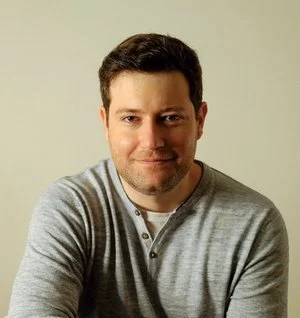
Thiago Abdalla writes epic Fantasy
“My approach was to treat it like a college degree. I searched for every bit of wisdom I could find in craft books, YouTube videos, author interviews, chatting with other people etc. and defined the pillars of what I needed to study. I created a foundation to give me enough confidence in my writing before starting to write and I think having that process pre-established is what made all the difference.”
-

Jean Gill writes ecofantasy and several other genres
“Stop writing in a session at a point where you know what comes next. I’ve always done this and never had writer’s block. I’m raring to go when I sit down to write.“
-
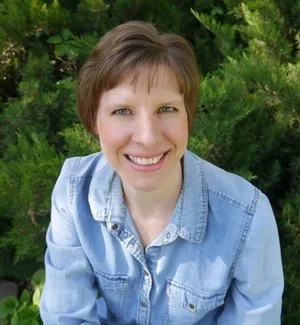
M. L. Farb writes fairy tales
“Write every day. Even if it’s a hundred words. Try flash fiction. Try poetry. Explore the different types of writing. Find what you love.“
-

Morgan K. Bell writes epic fantasy/steampunk/dragon fantasy
“The pomodoro method is the only way I ever get anything done. If you’re not familiar with it, it’s this thing where you set a 25 minute timer, work for those 25 minutes, and then take a 5 minute break.“
-

Peter Blaisdell writes medieval/Arabic/low fantasy
“Try to write clean sentences without too many adjectives and adverbs; it’s amazing how powerful simple subject-verb-object sentences can be to move the action along. As Mark Twain said, ‘If you catch an adjective, kill it!’.“
-

W.D. Kilpack III writes epic/sword & sorcery fantasy
“You see a movie and a line of dialogue has you going down another path, write it down. You hear a song and a lyric strikes you, write it down.“
-

Anat Eliraz writes portal fantasy and sci-fi
“Write in the way that fits you. Some are plotters, some are pansters (discovery writers). There is no ‘one fits all’. Write where and when fits you. Write because you have a story to tell and not because you want to be famous.“
-

A.C. Cross writes weird western
“...give yourself permission to do something different! Write a character you don’t expect. Write a scene that confuses you. Write something off-the-wall and unique to YOU. Let YOUR voice work within the book and it will come out better, guaranteed.“
-

Olivia Atwater writes romantic fantasy
“I recommend that authors learn techniques for clear, communicative writing. One of the many hats I’ve worn is that of technical writer, and my experiences with technical writing made my writing inordinately better and more accessible. You might be a wonderfully atmospheric, descriptive author—but if your reader can’t tell who’s speaking at any given time, their brain has to work far harder just to follow the story, and that means their brain isn’t focusing as much on your lovely descriptions!“
-
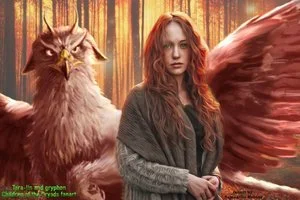
Raina Nightingale writes high fantasy
“If you write to create the perfect book for you, the book you want to read, and you don’t compare what you’re writing to anything except what you want it to be, it’s a drive to excellence all on its own, and … in my experience, at least, it takes care of that imposter syndrome issue pretty nicely. After all, only I can create my story…”
-

Kristin Gleeson writes romantic urban fantasy
“...(read) at least 1000 books in a genre before you attempt to write in it...Each genre has certain reader expectations and it’s best to know what they are when you write.“
-
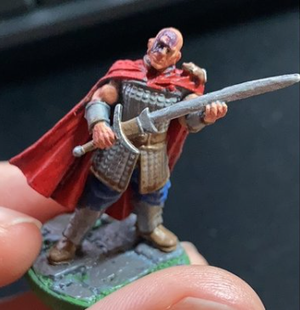
Casey Hollingshead writes gritty low/military fantasy with mythical and horror elements
“I maintain a “living” document of sentences, idioms, words, ideas, names, etc. I’ve always sorta done this, but rarely kept it organized. It was only after seeing Eminem of all people show that he kept shoeboxes filled with notes and rhymes that it kinda clicked for me. (Talented lyricists are themselves top tier writers, so their methods are worth looking into, certainly moreso than mine heh.) My “shoebox” is currently over 14,000 words now and is an invaluable asset; I always have it open while writing and/or reading.“
-

Jowsey Jones writes comedy fantasy
“...writing satire/comedy/farce allows me to get away with a raft of so-called writing no-nos. Info dumps, multiple points of view and chronological impossibilities can be sloshed in and merrily explained away with a shrug—it’s a comedy, innit?“
-
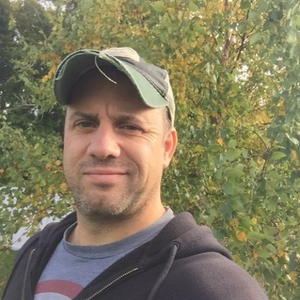
Kevin Wright writes medieval fantasy/detective mashup
“Learn the basics of grammar and edit the hell out of your amazing story. And don’t only make peace with the editing process, force yourself to love it, because that’s where the magic happens.“
-

Holly Karlsson writes fantasy adventure
“I think it’s incredibly helpful to have a trusted critique partner. My stories are stronger because of this feedback, and it’s made it easier to see where I can improve.“
-
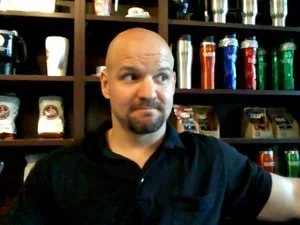
Andrew C. Piazza writes cosmic horror
“Editing your own work is tedious but essential to get better with your prose. Constantly go over your work. Can this sentence or that one be improved in any way? Can it be made more succinct? More clear? More emotionally evocative? Keep going over it, again and again, until you’re ready to go insane. And then, go over it again.“
-
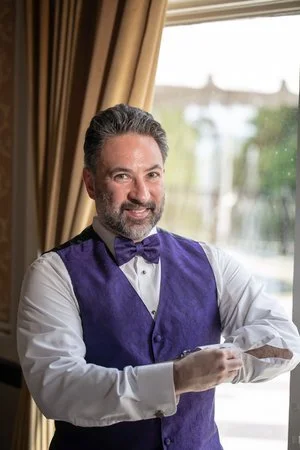
JCM Berne writes superhero fantasy
“Your first draft will suck. If you write a first draft and think it’s okay, that’s because you’re not good enough at reading with perspective (yet). You need a team of people to help you rip that draft apart and put it back together, over and over, until it’s good. Which might never happen, but it might.“
-

Alex C. Pierce writes dark fantasy
“Beta-readers, editing, and being open to criticism, growth, and improvement.“
-

Staci Olsen writes mythological fantasy/historical fiction
“Don’t just throw your book up on KDP as soon as you finish it. Test it with readers, revise, then test again. Hire qualified editors and cover artists. Do your due diligence to put out a professional product.“
-

Christopher Clargo writes epic fantasy
“If you’re serious about self-publishing, get a professional editor. It’s not cheap, but it’s worth every penny—especially when you’re new to the game. But even that’s not enough to get noticed in the saturated world of Amazon etc… If you can’t do it yourself, get a book cover designed by a professional and spend time getting your blurb right.“
-

Tom Mock writes occult fantasy horror
“…I eventually got over the disastrous notion that I had some special creative instinct and whatever I wrote would be good… I had to write a synopsis (the bane of all writers) when I was querying the book. It was uncomfortably revealing because it showed me how much I had faked in the book and how many otherwise good ideas I hadn’t done much with...I was in as much of a rush to get done with the novel as anyone. I cut corners, got distracted...I had to admit to myself that I hadn’t done what I thought I’d done. I’d paid a lot of attention to prose, but I needed to focus more on story… The agents weren’t wrong, my story was… From there, though, everything got easier.“
-

HJ Ramsay writes YA fairy tales
“...volunteer to read for a literary journal. They’re always needing readers, especially the smaller ones. After you’ve read 100 stories, it’ll be the clearest thing you ever saw.“
-

Dito Abbott writes YA adventure
”My best piece of advice for writers is to read. Once you start writing a novel, words taste different.”
-

Charlotte Kersten writes gaslamp Fantasy
“Sensitivity readers can be a great source for feedback on representation if you are writing identities or significant experiences that are not your own…”
-

Cal Black writes gaslamp & fantasy western
“I find that when I hit ‘writer’s block’, I’m usually tired or burnt out from other aspects in my life. Reading helps recharge my creative battery.“
-

Andrew D Meredith writes Slavic fantasy
“I can’t emphasize enough how important it is to get involved with the community. From interacting with other authors and bloggers on Twitter, to joining a Discord of like-minded individuals. It encourages. It gets your book and name out there. It reduces the feeling that you’re a ship in a troubled sea. (Despite what Simon and Garfunkel said, you are not a rock, nor an island.) We are all in this together. Don’t have a community? Ask someone!“
-

M.S. Olney writes heroic fantasy
“The EPIC website that I created and run. My aim is to turn into the one stop shop for indie authors and readers. It has an Indie author directory, a book release calendar and now a resource page that lists services that any author can find useful.“
-

T. A. Hernandez writes flintlock fantasy/sword & sorcery
“Half the reason my books end up decent at all is because I’ve built connections with other writers who have critiqued my work or given me great advice on self-publishing, and hopefully I’ve been able to help them in turn.“
-

Stephanie Burgis writes regency fantasy
“...focus on what’s most fun to you in a book, and – if you possibly can – try to make friends with other authors who are willing to swap manuscripts and offer constructive, positive feedback to help you get better and better!“
-

J. B. Cantwell writes dark epic fantasy
“...it’s important to remember that what you’re doing is BRAVE. It takes guts to put yourself and your story out into the world. It’s easy for others to criticize, so be prepared for it, but always keep in mind that those who are nasty about their opinions of your work probably aren’t doing anything nearly as creative as you are. Take breaks from time to time, but don’t quit!“
-
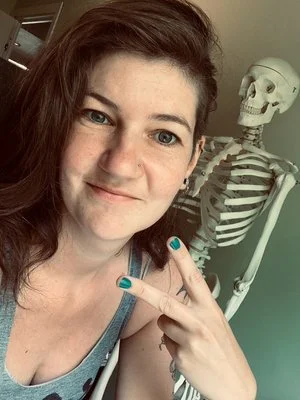
Karen Lykkebo writes fantasy romance
“...just try! Try writing, try have someone read it, try send your work to publishers and contests.“
-

Steve Dragon writes fairy tales, folk tales, legends & mythology
“The best advice I can give is to not give up. I had the ideas for the books in my head for thirty years.“
-

K.A. Ashcomb writes humorous dark comedy/gaslamp fantasy
“I think it’s all about passion. You know, writing about things you love and believe in. It will show from your work whatever the subject is.“
-

Abbie Evans writes LGBTQ+ fantasy
“Ha! Well in my case it was sheer determination to prove a reviewer wrong. But seriously, don’t be afraid of critique, don’t take it personally, take it on board and use it to make yourself a better writer.“
-

L. James Rice writes epic fantasy
“Back when my Grandma was alive, she would be working on a project and someone would suggest a better way. She would smile and say, “You might be right.” She then proceeded to finish the project exactly as she planned. The moral of the story is to be polite, consider every piece of advice folks offer, but realize that even advice with the best intentions can be wrong. As an author, you’ll hear a lot of it, and the trick is picking out which is right.“
-

Quenby Olson writes cozy fantasy
“There’s a line from the show King of the Hill, where one of the characters - who cuts hair for a living - reminds another hairdresser that a botched haircut will grow back. “It WILL grow back.” And I think about that with writing. If I screw up this scene, the words are still there for me to fix, the ideas and the creativity will come back to me. It will grow back. I can fix this.“
-
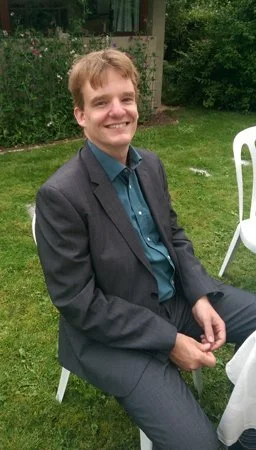
Rune S. Nielsen writes epic fantasy
“Decide on a way that your world is different and let your story and character ideas flow directly from world-building. How do I do that? Do a quick initial brainstorming session to make your world feel unique. Let’s say you decide to place your story on a planet with low gravity. How would this affect people? Are they taller and spindly thin? Can they fly? Do the characters jump or fly around and do sword fights in midair? How would low gravity impact architecture and society? And is the atmosphere a unique mix? Do these things affect the magic? Write the answers down and soon your characters and setting will be easy to visualize and you’ll get a lot of “free” story ideas.“
-

Joseph A. Schiller writes sci-fi/fantasy
“You cannot feel self-conscious or hesitant about plugging yourself and your book. Again, no one else will fight for your book, so you must. Message every book blog, YouTube book reviewer, and podcaster in this industry that you can. Message every indie bookstore you can and try to line up consignment of your book with them. Bookfairs, farmer’s markets, think outside the box.“
-
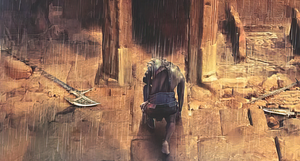
Tony Debajo writes fantasy action and adventure inspired by Nigerian folklore
“Reedsy. They were my go-to to find professionals that helped me through my writing and publishing. From editors to marketers and book cover designers. It is a one-stop shop for writers.“
-

Amy Campbell writes epic fantasy in an Old West-style setting
“For marketing, I think more authors should look into Kickstarter. I’m in the middle of planning a campaign that will launch probably August 2022, and I’m really excited by the opportunity to offer my existing fans some cool things I can’t give them on retailers, plus find more potential fans!“
-

Brand J. Alexander writes epic/coming of age fantasy
“Newsletter- (Having one helps. I get sales through it. You can too.) Currently using Mailchimp.
I use StoryOrigin to help build my newsletter subscribers.“
-

J. W. Benjamin writes litRPG
“Publisher Rocket is utterly superb for helping find the best keywords and for doing market research for publishing on amazon. I personally found serializing my novel to be an incredible boon, helping me to get used to a regular writing schedule and also helping me get used to interacting with readers—both the type who enjoyed my work and the type who hated it.“
-

K.E.Andrews writes dark fantasy
“I always ask why and how with a character’s actions: why something is important/how does it affect things. I like to look at the fine details and ripple effects because sometimes things are overlooked in stories, and it can make stories feel a bit rushed. It also helps me decide if adding something to the story or character is necessary or relevant. Not everything has to be relevant, but I think it’s important to see how a small action can affect a character’s storyline and the plot.“
-
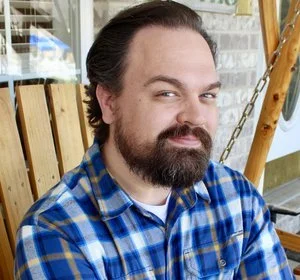
Cameron Hopkin writes epic/dark fantasy
“Listen to people talk. Take an acting class and pay attention to the cadence of how people speak, and how infrequently we actually land on the words we really want. I feel like giving the sense of real people talking in your novel can cover a multitude of writerly sins.“
-

Shaun Paul Stevens writes epic fantasy
“Let your story simmer like a good stew until its richest flavours develop, and you’ll discover what really makes your characters tick.“
-

Jeff Chapman writes dark fantasy adventure
“Give yWriter a try. It’s a free story/novel writing tool. Similar to Scrivener but without the price tag.“
-
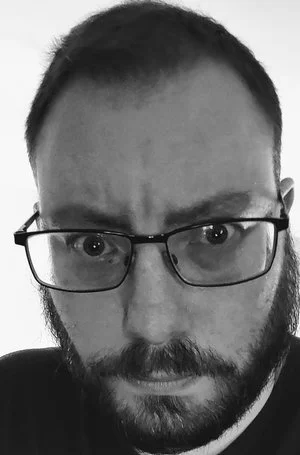
John Palladino writes grimdark/epic fantasy
“I personally learned so much from using ProWritingAid that I can’t recommend it enough.“
-
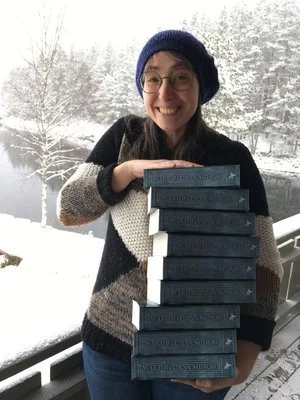
Helen Rygh-Pedersen writes epic fantasy
“I have found Brandon Sanderson’s lectures incredibly helpful as well as a whole host of Booktubers and authors on Instagram. Of course, it is important to stress that while there are lots of people out there giving advice, it’s up to you which bits of it you listen to.“
-

Azalea Forrest writes fantasy adventure, LGBTQ+
“I really recommend Fantasia Archive! It’s a free tool for any lore-maker. I used to use GDocs but got so overwhelmed: Fantasia does a much better job.“
-
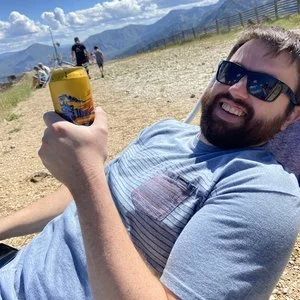
Ben Stava writes action and adventure fantasy
“Scrivener! I do most of my writing in Microsoft Word, but Scrivener is what I use when it comes time to “publishing” and creating the ebook files for Amazon and the like. It’s a very easy and powerful tool and one that every writer should have in their toolbox.“
-

Matthew Marcellus writes military sci-fi thrillers
“Every author on Amazon should put their book on Amazon Audible ACX. You can make a deal with a narrator, so you don’t have to pay money up front. Audiobooks are the future in my opinion. Less people are reading, and more people are listening to books.“
-

Melissa Stone writes magical girl fantasy
“I’ve had some luck with getting beta readers on Betareader.io
If you need a cover but have a small budget (like me, lol), I’ve had luck with Getcovers.com“
-
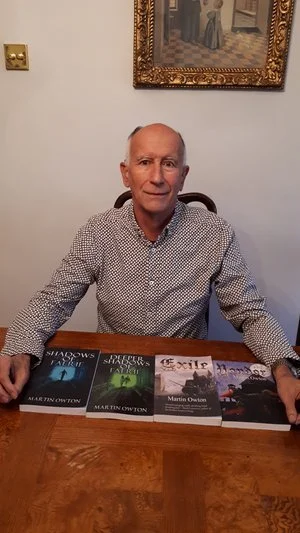
Martin Owton writes epic/sword & sorcery fantasy
“I've been using the Absolutewrite forums for about 20 yrs. There's a wealth of useful information there as well as critiquing threads. My own website has a list of UK SF/F agents that I try to keep current. It is the best list I know of, otherwise Querytracker.net is great for US agents.“
-
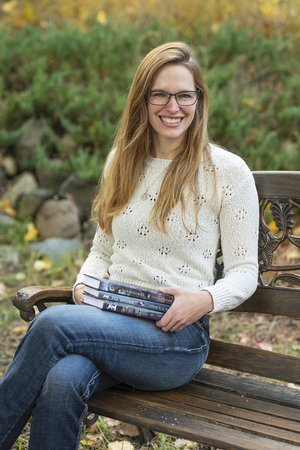
Sarah K. L. Wilson writes fairytale fantasy
“I’d recommend listening to the StoryGrid Podcast. The more recent stuff is maybe a bit technical, but if you go back and listen from the beginning there are some great conversations that will light ideas in your mind to help with your own stories.“
-
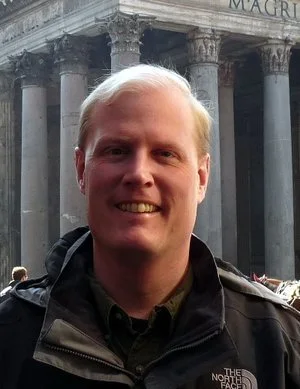
Dave Dobson writes fantasy mystery
“I’ve formatted my last several books in Atticus. They’re still working on it, but it’s quite fully-featured and intuitive. I’ve found it far easier to use than Calibre, which I still use for tricky formatting pieces. Calibre has the huge advantage of being free in addition to being extremely powerful (though less intuitive).“
-

Benjamin Reeves is a screenwriter, filmmaker, and the creator of the Ballads of the Distant Reaches
“Fantasy writers should really check out Inkarnate.com. It’s a fantastic tool for creating fantasy maps, and it can be a good way to just play with ideas.
Listen to the Script Notes podcast. It’s hosted by John August and Craig Mazin, two of the best screenwriters working today, and a lot of what they talk about crosses formats and genres.“
-

Mark Lawrence writes fantasy and other genres
“I wrote a blog about this the month after being published.
The tl:dr is that it’s mostly luck.“
